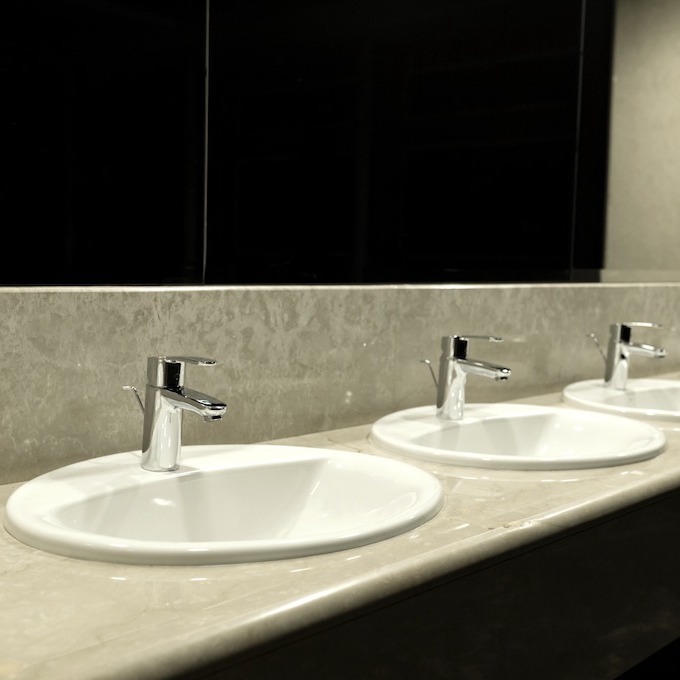
Learn More about the Heavy-Duty Nature of Commercial Plumbing
Plumbing is plumbing, right? What comes out must drain and go away, right? Not necessarily! A general description of commercial plumbing is a complicated faucet and pipe installation. It covers a variety of businesses and large residential complexes with water supply systems and waste removal.
Commercial plumbing has clogged drains, busted and leaking pipes, and water heaters problems just like residential plumbing, commercial plumbing is designed for heavier workloads.
What are the Specific Differences Between Commercial Plumbing and Residential Plumbing?
- The Daily Usage
The daily usage of commercial plumbing is greater than residential plumbing due to the amount of traffic. From employees to customers, commercial plumbing has more fixtures and piping.
- Durability and Size
Because commercial plumbing has more usage, it has more durable and larger fixtures. This minimizes the number of breakdowns and problems. Residential plumbing systems are smaller, with low-grade pipe fixtures that have the same amount of frequency use.
- Complexity
Commercial plumbing is installed in multiple floor structures with numerous sinks, toilets, and urinals. Residential plumbing is simpler and has easier navigation.
- Efficiency
No plumbing system is perfect, damages are possible at any point and time. A commercial structure with a clogged toilet or sink can affect many people and repairs need to be done quickly. Where residential plumbing can often be fixed by the homeowner, a commercial plumbing problem must be addressed by a professional commercial plumber.
- Damage Probabilities
The complexity of commercial plumbing is more apt to be damaged than residential plumbing because of the higher number of people using the system.
- Water Heaters
Commercial plumbing requires water heaters with larger storage tanks with higher gas input levels compared to what residential water heaters do.
- Health Concerns
Commercial plumbing is used by more people and is subjected to more bacteria and germs. Proper hygiene is a must in commercial structures like hospitals and restaurants where residential plumbing can be less demanding.
What Kind of Structures Need Commercial Plumbing?
We have discussed the large scale that entails commercial plumbing, but to better understand where commercial plumbing is needed, here are some examples:
- Private or Public Offices — Commercial bathrooms typically have multiple stalls. So, when one toilet backs up because of a clog, the flooding can have an effect on the other toilets. Even a breakroom sink being backed up can cause problems for the employees.
- Hospitals or Restaurants — Faulty equipment in a hospital or restaurant kitchen can put the beverages and food at risk. They can also impede the chef’s preparation of the food by not being able to rinse the fruits, pasta, or vegetables.
- Apartments and Hotels — If you’ve never experienced an upstairs neighbor leaving a sink or tub filling, feel fortunate! There is nothing worse to come home to a downstairs apartment or hotel room to have a bathtub sitting in the living room.
Can You Live in a Commercial Building with Commercial Plumbing?
In Texas, yes, as long as the commercial property has zoning that permits living in the structure. Throughout The Lone Star State, every city and county has different regulations, so you’ll want to confirm with the powers that be if habitation in a commercial structure is allowed. Commercial plumbing is heavy-duty and meant for heavy-duty use, but you can accommodate yourself to live in the facility too if the zoning regulations permit.
What Type of Material are Commercial Plumbing Pipes?
In the old days, most residential or commercial plumbing was either copper or galvanized iron. Today though, there are other options that have proven to be more cost-efficient and reliable:
1. POLYETHYLENE
Polyethylene, aka PE, is the least expensive and this makes it a common commercial plumbing material. This pipe material efficiently handles cold water distribution and works well with low-temperature applications.
2. HIGH-DENSITY POLYETHYLENE
HDPE (High-density polyethylene) commercial plumbing pipes are denser products than the classic PE pipe described above. Because it is a flexible pipe, it is ideal for replacing old steel pipes. HDPE is impermeable, making it ideal where the water is at high pressure.
3. CROSS-LINKED POLYETHYLENE
Commonly referred to as PEX, this is another version of the polyethylene pipe that is manufactured to handle both cold and hot liquids. Because of that, its flexibility, and minimal maintenance, it is the perfect choice for a commercial establishment.
4. POLYVINYL CHLORIDE
PVC isn’t as flexible as the other materials available for commercial plumbing, but polyvinyl chloride is still a common choice in commercial plumbing.
In Closing
In addition to those 4 commonly used pipe materials for commercial plumbing, other options include Chlorinated Polyvinyl, PVC ducts and conduits, Polypropylene Random Copolymer Plastic, Polybutylene, and Polyvinylidene Fluoride. Each has its benefits and drawbacks.
If you’re building a commercial structure from the ground up, a professional commercial plumber is the best to advise the right type of pipe to use. And the same is true with renovating a commercial structure’s plumbing.

